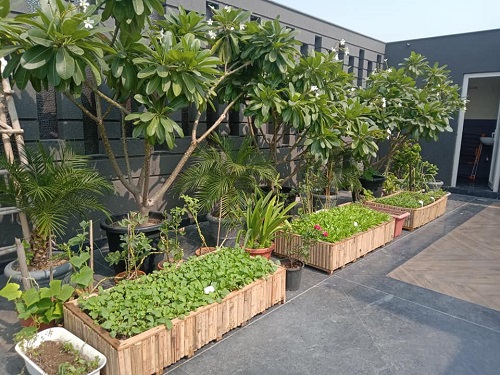Delivering organic food landscapes.
There is definitely a charm in using fresh vegetables that you had a hand in bringing to your table. But the green thumb is not for everyone, and even when it is, it requires time, effort and space that is hard to come by in an urban setup. What if someone could assist you with your green thumb? If you are residing in Delhi or Gurgaon, then Edible Routes is at your service. Edible Routes allows you to build food gardens in your own backyard/terrace or rent a small farmlet. This way, you not only know where your food comes from, but you also know how it got there to begin with.
Established in 2014, Edible Routes has so far worked with 800 individuals, helping them with their food landscapes. They have about 200 subscribers for their farmlet module. For the founder, Kapil Mandawewala, the Edible Routes journey began with his own pursuit of organic farming and healthy living.
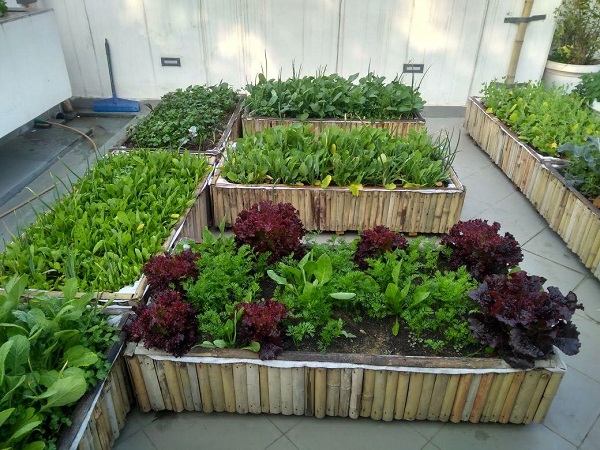
In 2008, Mandawewala moved from the US to India to learn and practise organic farming on his farm in Jamnagar, Gujarat. A consultant with Deloitte in his past life, he had to learn the ABCDs of farming literally on the ground. Seeing the success of his farm, people began approaching him for tips and ideas to set up organic kitchen gardens in their backyards. As word spread around, he began conducting workshops in Delhi and soon set up a base in the capital.
So how did Edible Routes move from backyards to mini farms? “There is lots of land in and around Delhi at an accessible distance. We convert such plots into small farms of 1200sft, 1800sft and 2400sft. These plots are rented out to people who do not have the space to set up urban gardens or the time to tend to their gardens,” said Ruchi Budhiraja Warikoo who heads Sales and Marketing at Edible Routes.
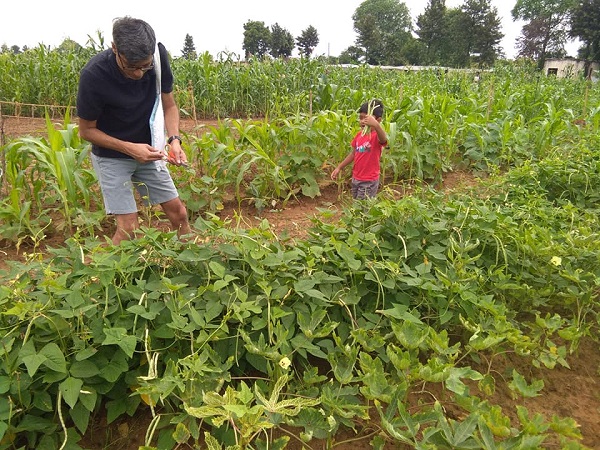
Warikoo further explained that the model works on a subscription basis where people share their vegetable preferences when they rent a farmlet. The Edible Routes team provides them with complete assistance to practice organic farming. If subscribers don’t have the time for it, farmers employed to maintain these plots take care of the vegetables and ensure that everything grows well. “People who take up the subscription model visit their farms when they have time. Many of them do so on weekends. They either harvest or observe the work at the farm and take home the vegetables from their plots. We also home-deliver the vegetables,” she said.
The Edible Routes Foundation
In February this year, Edible Routes initiated its non-profit foundation to promote eco-education, waste and water management. One of the foundation’s primary goal has been to reach out to school students and involve them in gardening as well as waste management. “We really want to engage them in a conversation about native plants and how they are fast going extinct. We want children to understand that these plants are suited for the local conditions, which is why they are durable. Additionally, we also want them to spend more time with nature, get their hands dirty doing some gardening, and teach them about waste,” said Warikoo.
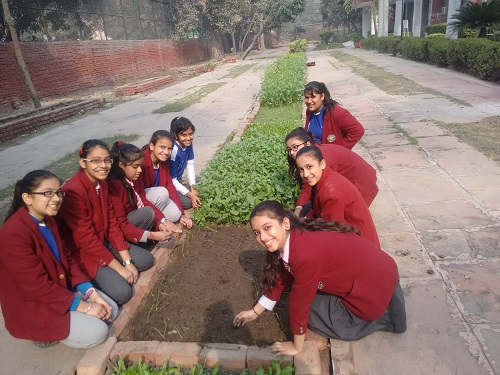
It’s not just school students who are benefiting from the Edible Routes Foundation. This initiative has also been collaborating with other organizations to bring positive change through the act of growing one’s own food. For example, working with the Bhumika Foundation, Edible Routes has helped set up kitchen gardens in low-income households of Okhla Basti. “Our goal with this project was to ensure that the people residing in this area have a constant supply of greens. There is not much space here, so we thought that utilizing their terrace space would be ideal. We involved the woman and the children, and they are really enjoying this experience.” Warikoo added that they are also planning to expand on this project and add more food gardens. Additionally, in their Aali Farm, near Okhla Bird Sanctuary, they conduct experiments on permaculture and natural farming techniques.
The Edible Routes Foundation has also worked with the Udaipur Jail to organize and conduct gardening workshops for the inmates. “This is a constructive and peaceful activity. When they see that their hard work has been rewarded, it definitely has a positive impact on their outlook.”
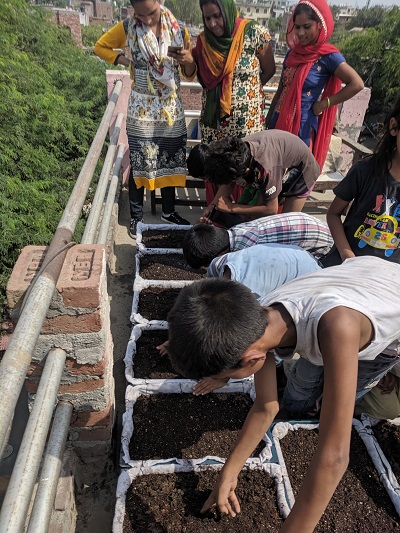
Feedback
Edible Routes has managed to create a community where people talk, exchange notes and celebrate their big and small wins in the green world. Warikoo said with pride that in the Edible Routes Whats App group, you will find pictures of the first root or shoot and the first harvest. Edible Routes has also witnessed many of their terrace gardeners switch to active farming by renting out their farms. “People show an appreciation for the food that they get and learn to value the work that goes behind it. It is absolutely beautiful,” she added.
While Edible Routes does have plans to green urban landscapes in other cities, as of now, they are keen on stabilizing their existing model. But if reading about this venture has gotten you excited about growing your food, then email them at info@edibleroutes.com and get your pots ready.
For more information visit: http://edibleroutes.com/
Featured Image Courtesy: Edible Routes Facebook Page
